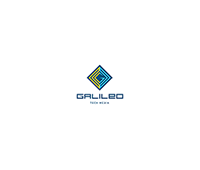What's the difference between Amazon SEO and Google SEO?
There are several similarities and differences between Amazon’s A9 algorithm and Google’s algorithm that natural product companies can leverage to increase sales.
February 27, 2019

When you’re marketing your natural products to consumers on Amazon, it’s easy to get overwhelmed. The sheer quantity of products listed on the retail giant means it’s essential that you understand Amazon’s algorithm and how to make it work for you. As you likely know, being found on Amazon is critical to success for most retailers today. In fact, 9 in 10 consumers check Amazon even if they’ve found the product they want on another retailer’s site. For buyers, the convenience of Amazon’s versatile and trusted platform can’t be beat.
Even if you’ve had success in the past with selling your products through your own website and getting them ranked on Google, you should know that Amazon uses an entirely different process to determine its search results. Mastering the Amazon A9 algorithm is the first step to increasing sales of your natural products and reaching Amazon’s 300 million active users.
Amazon’s A9 algorithm encompasses numerous determining influences – many of which are ever-changing and ambiguous. Paired with the fact that Amazon does not report on search volume, utilizing traditional SEO tactics can lead to disappointing results. Instead, compel the consumer to buy through informative, keyword-rich, and engaging copy that’s tailored to complement Amazon’s distinct algorithm.
First of all, you should be aware that, unlike Google, Amazon prioritizes conversions over clicks. This means that selling more is an essential part of reaching a higher rank on Amazon and, in turn, selling even more. Though that may seem impossible, by following additional Amazon listing best practices, you can make the most of A9.
Amazon focuses on short-tail keywords versus long-tail keywords. This differs from Google and other mainstream search engines, for which long-tail keywords and queries in the form of sentences or questions are king. Do plenty of keyword research and develop the best combination of short-tail keywords you can to help your products be found.
When it comes to choosing your keywords for Amazon listings, you should be aware that, unlike Google, Amazon doesn’t publish search volume data and trends. Although this can make conducting Amazon keyword research more challenging, there are plenty of tools available to help determine which keywords you should be targeting in your content. In addition, conducting competitive research can also help illuminate which keywords are most pertinent to your product and brand.
Amazon is not influenced by external linking like Google is. Backlinks serve as validation to Google’s algorithm that the content on your site is valuable and worth a higher ranking. On Amazon, though, linking to your own website or asking bloggers and reviewers to assess your product won’t get you ahead.
On the other hand, positive reviews on the retail giant itself go a long way toward driving conversions. Social proof is an essential aspect of your listing, so be sure to encourage satisfied customers of your natural products to review them on Amazon if they are willing to do so. It will help you reach higher rankings and sell to even more happy customers. After all, it’s in Amazon’s best in interest to drive buyers to products that will keep them satisfied. Only by doing so can the site maintain its stellar reputation for being a one-stop shop.
All this said, there are plenty of similarities between Amazon’s and Google’s algorithms. For instance, your tried-and-true Google keywords are often your best choice for Amazon keywords. When you’re getting started on Amazon, it’s not a bad idea to use the already-existing data you have from Google search insights to inform your Amazon keyword strategy. What’s more, Google SEO tools like Google Keyword Planner can be leveraged for the sake of Amazon keyword research. Once again, however, we advise prioritizing short-tail versus long-tail keywords on Amazon.
Other great news for sellers of natural products who excel with Google rankings? Product titles and title tags operate similarly on Amazon. Amazon and Google look at these snippets of information first to analyze and organize search results. SEO best practices dictate that each must be optimized accordingly. Be sure to highlight your most important — or “primary” — keyword(s) at the beginning of the title. Adhere to character count best practices (ideally a maximum of 60 characters on Google and 50 on Amazon). Lastly, be sure to use appropriate punctuation and case capitalization. If you do nothing else, optimizing your product title for Amazon SEO is a must.
Both Google and Amazon want happy users, which is why the highest-ranking web pages and product page listings are those that are also most relevant. In other words, they match the keywords the user is searching and result in quality interactions. In the case of Google, “quality,” can mean a myriad of things, such as time spent on a given site. As we discussed, on Amazon, quality means that you’ve made a sale.
Engaging in practices like keyword stuffing will not only get you penalized on both Google and Amazon, it will actually hurt your product and page ranking in the long-term. There’s nothing users dislike more than copy that sounds like a sales-hungry robot wrote it, and there’s nothing Amazon and Google dislike more than unhappy users!
Finally, you should realize that you will need to continually revisit your Amazon strategy, just as you likely already do to ensure your site remains optimized for Google. In the ever-changing landscape of the Internet, there’s no such thing as “set it and forget it.” Once you get your listings up and running, it pays to monitor trends, monitor your advertising performance, and adapt your Amazon content accordingly. You’ll be glad you did!
A properly designed Amazon listing can mean the difference between natural products that sell well and those that do not. Take the time to build your listing according to A9 best practices and you should see your search rankings, and ultimately your sales, improve.
Galileo Tech Media provides managed SEO and content marketing services that ensure maximum visibility in organic search results.
About the Author
You May Also Like



.jpg?width=700&auto=webp&quality=80&disable=upscale)
